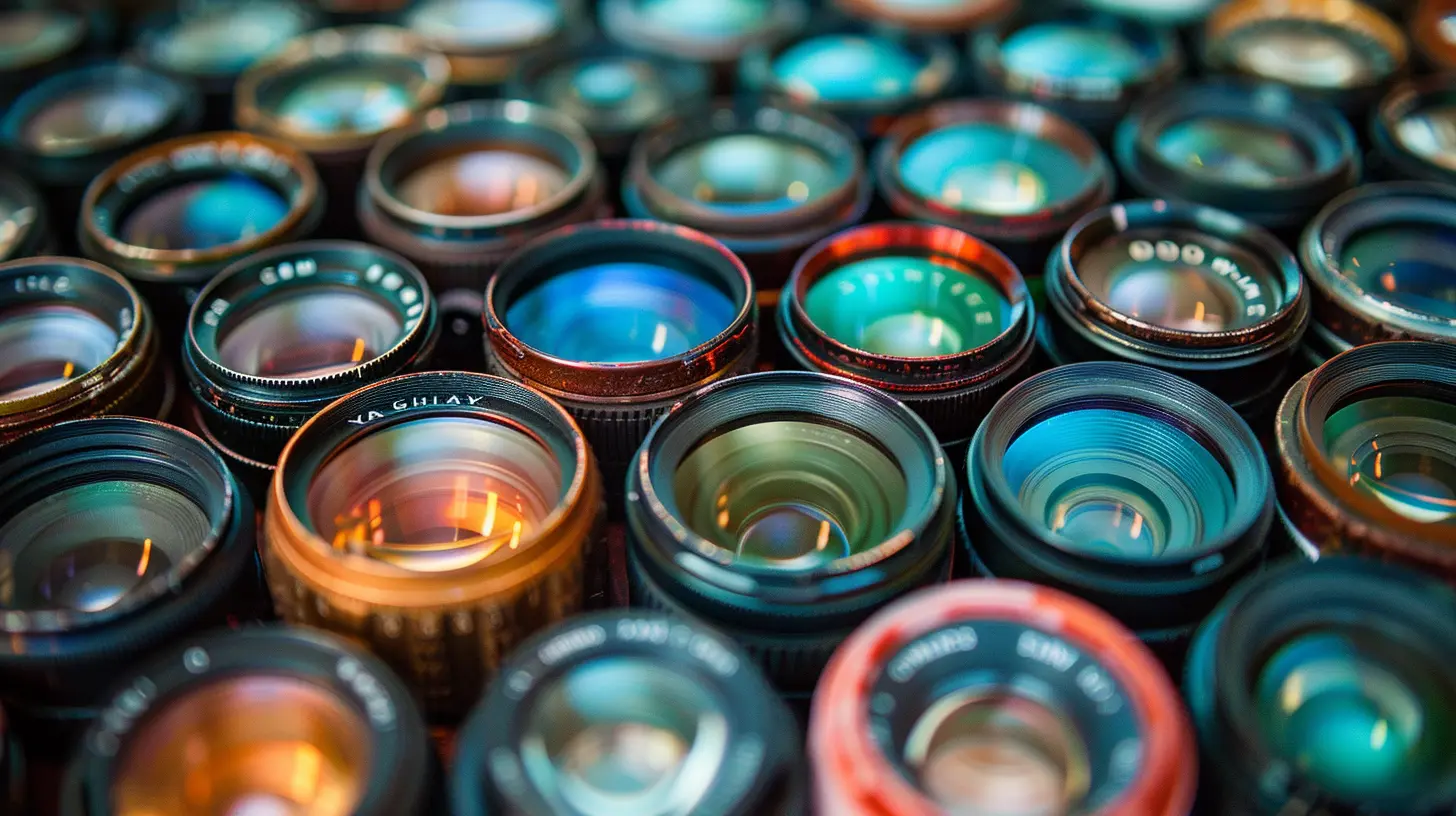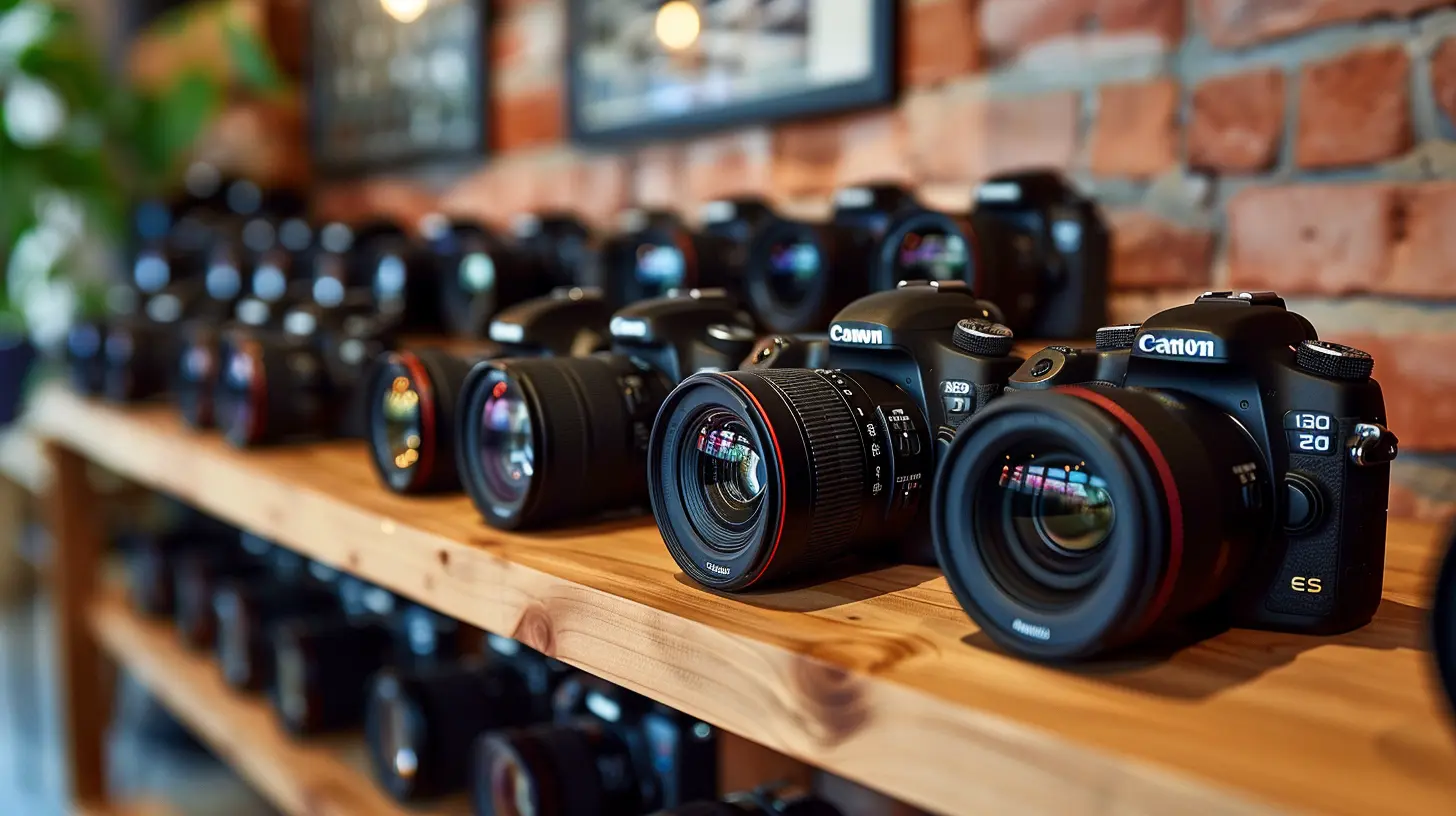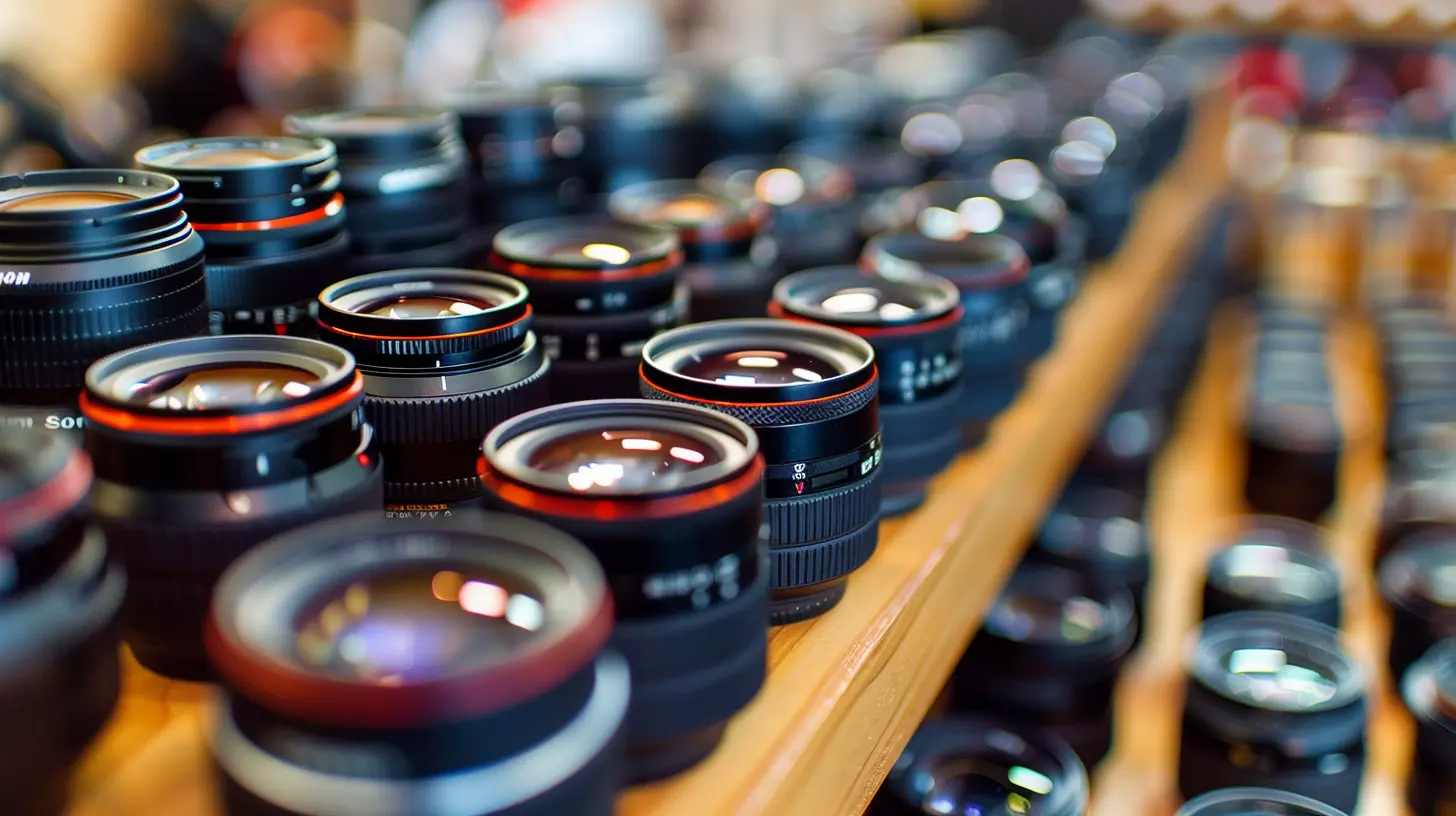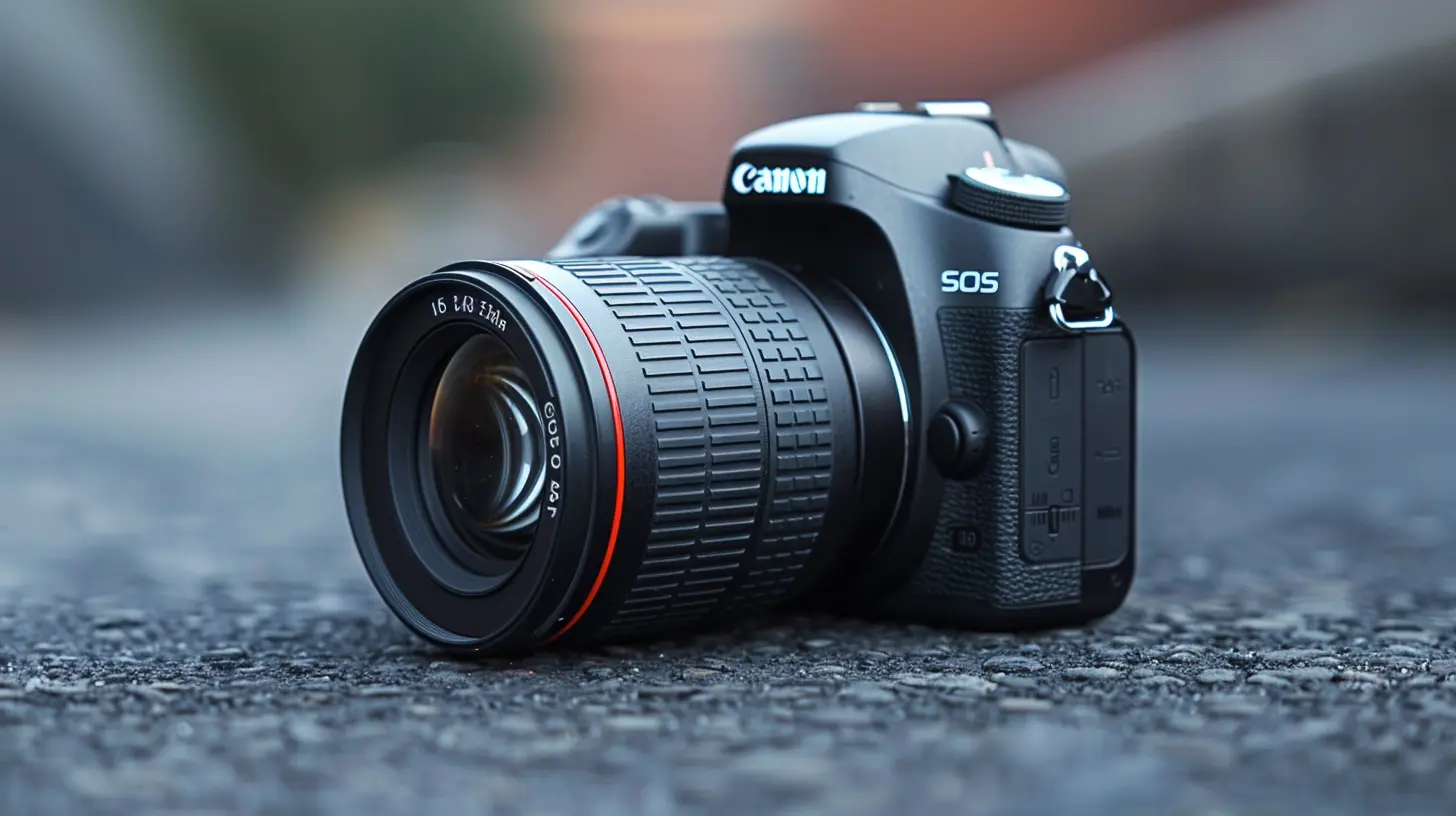How to Choose the Perfect Lens for Your Digital Camera
6 June 2025
If you're serious about photography, then you know that choosing the right lens is just as important as picking the right camera. A great lens can make an average camera shine, while a poor one can make even the best camera struggle. But with so many options out there—primes, zooms, wide-angle, telephoto—it’s easy to feel overwhelmed.
So, how do you find the perfect lens for your digital camera? Let’s break it down into simple, practical steps. 
Why Your Lens Matters More Than Your Camera
Many beginners focus on buying the best camera body they can afford, but the truth is, a high-quality lens will have a bigger impact on your photos than a top-of-the-line camera.Think of your camera like a car and your lens like the tires. No matter how powerful the car is, if you have poor-quality tires, you won’t get the best performance. Similarly, the right lens will bring out the true potential of your camera, giving you sharp, vibrant, and professional-looking images. 
Understanding Lens Basics
Before we jump into choosing a lens, let’s go over some key terms you need to know.1. Focal Length (mm)
Focal length determines how much of a scene your lens captures and how close or far subjects appear. It’s measured in millimeters (mm) and generally falls into these categories:- Wide-Angle Lenses (10mm–35mm) – Great for landscapes, architecture, and large group shots.
- Standard Lenses (35mm–85mm) – Ideal for portraits and everyday photography.
- Telephoto Lenses (85mm–400mm) – Used for wildlife, sports, and distant objects.
2. Aperture (f-number, e.g., f/1.8, f/3.5-5.6)
Aperture refers to how much light the lens lets in. A lower f-number (like f/1.8) allows more light, which is great for low-light photography and achieving a creamy background blur (bokeh). Higher f-numbers (like f/11) offer more depth of field, keeping everything in focus.3. Prime vs. Zoom Lenses
- Prime Lenses – Have a fixed focal length (e.g., 50mm). They often produce sharper images and perform better in low light, but they can’t zoom in or out.- Zoom Lenses – Offer a range of focal lengths (e.g., 24-70mm). These lenses provide versatility for different shooting situations but may sacrifice some sharpness.

How to Choose the Perfect Lens for Your Needs
To find the right lens, you need to match it with your style of photography. Here’s a guide based on different shooting scenarios:1. Portrait Photography
If you love capturing people’s expressions and emotions, a 50mm f/1.8 (aka the "nifty fifty") is a fantastic choice. It’s affordable, sharp, and produces beautiful background blur. If you want more reach, an 85mm f/1.8 is another excellent option.Best Lenses for Portraits:
✔ Canon 50mm f/1.8 STM✔ Nikon 85mm f/1.8G
✔ Sony FE 85mm f/1.8
2. Landscape Photography
For breathtaking landscapes, you need a wide-angle lens to capture the entire scene. A 16-35mm f/4 or even an ultra-wide 10-20mm lens will help you fit in mountains, oceans, and cityscapes without distortion.Best Lenses for Landscapes:
✔ Canon EF 16-35mm f/4L IS USM✔ Nikon Z 14-30mm f/4 S
✔ Sony 10-18mm f/4 OSS
3. Wildlife and Sports Photography
Wildlife and sports require telephoto lenses to capture distant subjects. A 70-200mm f/2.8 is a popular choice for sports enthusiasts, while a 100-400mm or even 600mm is ideal for bird and wildlife photography.Best Lenses for Wildlife and Sports:
✔ Canon RF 100-400mm f/5.6-8 IS USM✔ Nikon 200-500mm f/5.6E ED VR
✔ Sony FE 200-600mm f/5.6-6.3 G OSS
4. Street Photography
Street photography requires a lens that’s fast, discreet, and versatile. A 35mm f/1.8 is perfect for capturing life as it happens without drawing too much attention. If you want more flexibility, a 24-70mm zoom lens works well too.Best Lenses for Street Photography:
✔ Fuji XF 23mm f/2 R WR✔ Sigma 35mm f/1.4 DG HSM Art
✔ Tamron 28-75mm f/2.8
5. Macro Photography
If you love taking detailed close-ups of flowers, insects, or textures, you need a macro lens. These lenses let you get extremely close to your subject while keeping everything sharp and detailed. A 100mm f/2.8 macro lens is a classic choice.Best Lenses for Macro Photography:
✔ Canon EF 100mm f/2.8L Macro IS USM✔ Nikon 105mm f/2.8G VR Micro-NIKKOR
✔ Sony FE 90mm f/2.8 Macro G OSS

Other Factors to Consider When Choosing a Lens
1. Compatibility with Your Camera
Not all lenses work with every camera. Some cameras use APS-C sensors, while others use full-frame sensors. Make sure your lens is compatible with your camera body to avoid issues like vignetting (dark edges in photos).2. Image Stabilization (IS/VR/OSS)
If you're shooting handheld, image stabilization (IS for Canon, VR for Nikon, OSS for Sony) helps reduce camera shake, especially for telephoto and low-light photography.3. Autofocus Speed
Fast, reliable autofocus can make a huge difference, especially for action, sports, or wildlife photography. Look for lenses with silent wave motor (SWM), ultrasonic motor (USM), or stepping motor (STM) for smooth and quiet focusing.4. Weather Sealing
Planning to shoot in rain, dust, or extreme conditions? Consider a weather-sealed lens to protect against moisture and dirt.Final Thoughts
Choosing the perfect lens doesn’t have to be overwhelming. Start by identifying the type of photography you love, then pick a lens that suits your needs. Think of it as investing in the right tool for the job—whether you're capturing stunning landscapes, fast-moving wildlife, or breathtaking portraits.A great lens can take your photography to the next level, so choose wisely and enjoy the process of creating beautiful images!
all images in this post were generated using AI tools
Category:
Digital CamerasAuthor:

Michael Robinson
Discussion
rate this article
2 comments
Kaleb Campbell
Selecting the ideal lens depends on your photography style, budget, and focal length needs.
September 5, 2025 at 12:07 PM

Michael Robinson
Absolutely! Your photography style, budget, and specific focal length requirements play crucial roles in choosing the right lens.
Elowis Ramos
Choosing the perfect lens requires understanding your photography style. Prioritize aspects like focal length, aperture size, and compatibility with your camera. Don’t hesitate to invest in quality glass, as the right lens can elevate your images and redefine your creative vision. Happy shooting!
June 24, 2025 at 3:08 AM

Michael Robinson
Thank you for highlighting these key factors! Understanding your style and investing in quality lenses truly makes a difference in capturing stunning images. Happy shooting!


